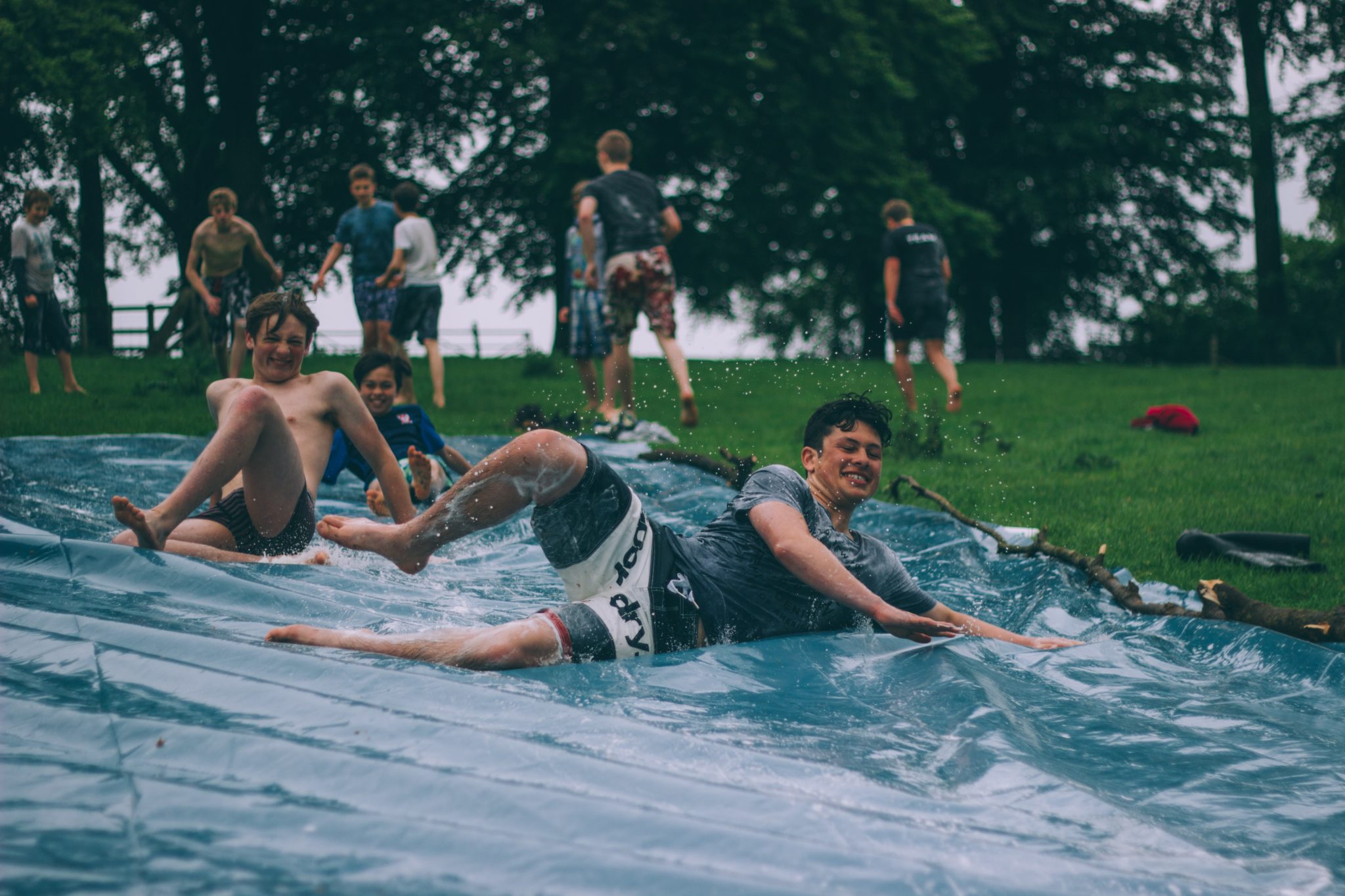Successful summer camps share many excellent characteristics. Always high on that list: a stellar camp counselor team.
Any of us who have gone to camp–or managed one–knows what a difference that individual counselor can make in a young life. Like teachers in a classroom, summer camp staffers wear many hats: mentor, guide, nurse, friend, and many more. So hiring, training and supporting the right staff are some of the most critical tasks of a camp leadership team.
 #1 Hiring Summer Camp Staff: Strategies That Work
#1 Hiring Summer Camp Staff: Strategies That Work
It takes a village. Cliché, right? However, a true statement when it comes to keeping summer camp thriving.
Responsible problem solvers, expert communicators, team players, and those who are energetic and flexible—how do you find them and how do you train them effectively? Here are some recruitment strategies to consider:
Look at what has worked (and what hasn’t worked) in the past.
If you’ve found great talent through specific channels in the past, definitely use those as your foundation and build from there. But don’t just repeat exactly what you’ve always done. Take a look to see if you need to update some of your outreach languages. Have some of your best new staff reviews and see if they’d make any tweaks to your ‘sales’ approach.
Get referrals.
Every hiring manager rejoices when they get referrals. An excellent source for hiring recommendations is the staff members you already know and love. Although hiring friends and family of current workers might be risky in some industries, this can be a successful strategy when it comes to building a strong summer camp team. After all, that connectedness is one small part of what summer camp is all about. Think about encouraging referrals with a bonus program and celebrating/recognizing team members that send you successful candidates.
Quarry from the community.
Your camp is already contributing to the broader community and surroundings. You have a reputation among locals that can serve you in finding new camp staff. Camp counselors in the area are likely to be more committed because they are working within their communities. This commitment creates a bond that can strengthen your leadership team as a whole.
Partner with parents.
Like current staff members, parents are good suppliers of referrals. Do they know any college students that are great with kids and looking for work? Are there any former babysitters or counselors from different camps that stand out as exceptional? A simple survey with a section for referrals at the beginning or end of camp can kick off next year’s staffing.
Offer internships.
Internships are another way to offer jobs to potential summer staff. Paid or unpaid, provide quality training, experiences, and stellar references through time at your camp can be the jump-start needed for a young person to get their professional career going once summer is over. Marketing these positions as an intern opportunity will help you get the hiring process rolling.
Consider software to automate some of the recruitment processes.
Long gone are the days where you had to hand pick every new-hire out of a stack of paper applications. Nowadays, most hiring happens online. Camp management software with staffing functionality can automatically organize incoming submissions for you, post. Relevant questions to weed out those that aren’t a great fit, and even integrate background checks and Clientlink for hiring international staff.
Read more about recruitment.
Recruitment is the foundation for building a solid leadership team, so reading more about recruitment tactics can only benefit your staffing team. Other CampMinder blogs are a great place to start.
#2 Summer Camp Staff Training: Let the Games Begin!
Once you have your team selected, the real work starts. Because your summer camp staff will be working directly with children, it is essential that they receive training that is both sound and practical. After all, you want them to be able to put their summer camp staff training to work! The following tips can help make this happen:
Take the time to train.
When the average person thinks of summer camp, images of children singing Kumbaya around a campfire and making friendship bracelets come to mind. Sure, music and crafts is an essential part of most camp experiences. But any great summer camp director knows that it takes more than knowing how to have fun to be a leader.
Think for a minute about how other companies that hire high volumes of seasonal staff do it. Fast Casual restaurants are an excellent case in point. Which chains stand out as having excellent customer service? You can bet they have an extensive training program to teach the basics–from how to address common customer issues, to how to make customers feel special and cared for. The same principles apply to training camp staff. Many summer camps hire staff with lots of enthusiasm, but limited work history. What seems common sense to a professional running a successful summer camp might not come naturally to them at first. But training and role-playing can turn that enthusiasm into a high performing team. Although it will cost money and resources up front, taking the time to equip your team to do their best is an investment that will pay off all summer long.
Develop a training program.
If you don’t have a set curriculum or training program that you use to develop all of your summer camp staff, you’ll spend all your time in ad hoc problem solving, and will face the same challenge every summer. Although it might be tempting, “winging it” is never advised when it comes to professional development in any field. The American Camp Association (ACA) has some great advice on developing that training program :
- An outline and activities centered around the most critical things CITs (counselors in training) must know to be successful. The framework might consist of topics like how to build camper self-esteem, providing a safe camp environment, and how to handle conflict between campers.
- Time set aside each day of training to speak with counselors individually or in small groups.
- Learning as you go opportunities—hands-on training and mentor programs work wonders.
Find Your Red Rubber Balls. Some team-building activities
Team-building activities are almost cliché nowadays, but they are an essential part of a camp counselor training program. However, it will take more than catchy sayings and ‘Hi, my name is _____” games to get your camp leaders to become one. Get creative here! If you were a camp counselor, what would YOU want to do?
One activity for building your summer camp leadership team comes from the book Rules of the Red Rubber Ball by author Kevin Carroll Katalyst. In his book, Katalyst discusses how we can each achieve maximum potential through the power of passion and creativity. He compares chasing our desires to chasing red rubber balls on the playground like we did when we were children (or campers).
Staff members have the opportunity to come up with three “red rubber balls” of their own. What personal desires will they pursue at camp this year? Maybe they want to make more friends of their own or learn to paint in their spare time. What passions do they want to help students chase? Perhaps they want to use their talents to push campers to become stronger swimmers or better communicators. So, what do the leaders want to happen for the camp as a whole? It is these ‘rubber balls’ that allow camp directors to make critical changes that will take the program in a positive direction.
After writing their answers on sticky notes and placing them on chart paper with everyone else’s response, camp counselors then get the opportunity to play with real rubber balls. While enjoying a game of HORSE or four-square, the counselors-in-training will have a chance to discuss their goals for camp and let loose a little.
These types of activities are needed to bring the group into a ‘one band, one sound’ mindset while not forcing them to give up all individuality.
#3 Bringing Them Back Next Year: Increasing Your Retention Rate
What is worse than spending a ton of money on training your staff? Spending a ton of money training staff that leave and don’t come back. The final part of building a strong summer camp staff is getting them to return the next year. Here’s how to do it:
Make sure the pay you offer is competitive.
Feeling unappreciated isn’t fun. Being underpaid is a contributor. Do some research regarding compensation. Where do your counselors’ salaries rank when compared to those of your competitors? If you’re fairing below average, consider upping the pay to give yourself an edge.
Present perks.
Consider a bonus for returning staff. We know you probably aren’t going to bribe your counselors, doesn’t have to be monetary! Maybe they get first dibs on the best housing? Extra downtime? A unique gift or trinket. You decide, make sure to make it worth their while.
Don’t ghost them.
One unique aspect of a summer camp team is that when summer is over, everyone goes home. During this time off, it is essential to stay in touch with your leadership team. Do this through phone calls, newsletters, or reunion events. Get creative! Whatever it takes to keep the connection.
Build lasting relationships with your staff
Creating lasting relationships when camp is in-session comes naturally. After camp, however, the fire starts to wane. Also, if you’ve ever tried to restart a fire, you know, it’s a lot of work (and smoky). A better option: Fan the flames throughout the year. You’ll be keeping that sense of community alive and well, and helping to create deeper bonds with campers and staff.
Don’t be afraid to say no.
When HR specialists tell you what their least favorite part of the job is you’re bound to hear ‘firing’ mentioned a few times. When hiring camp counselors, not everyone will cut for the next year. Don’t be afraid to say ‘no’ to a return. Just make sure to give positive feedback and ways they can improve for their next position.
Help with career advancement.
A final part of the camp staffing dynamic that is different from other industries is that few people want to continue their role as a camp counselor forever. Although being part of a summer camp leadership team is an extraordinary and rewarding role, it is usually a stepping stone more than a final destination. Instead of fighting the wave, roll with the tide. Write reference letters, recommend them for other positions, and help them advance their careers in ways that you can.
Final Thoughts:
Creating a legendary leadership team can be one of the most rewarding aspects of camp management and growth. By focusing on hiring competent camp leaders, training them well, and actively increasing retention, you will be able to shape staff members that will lend themselves to a fantastic camp experience.



